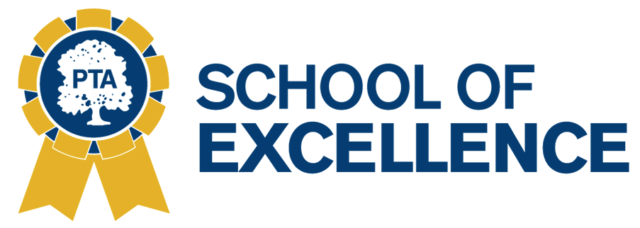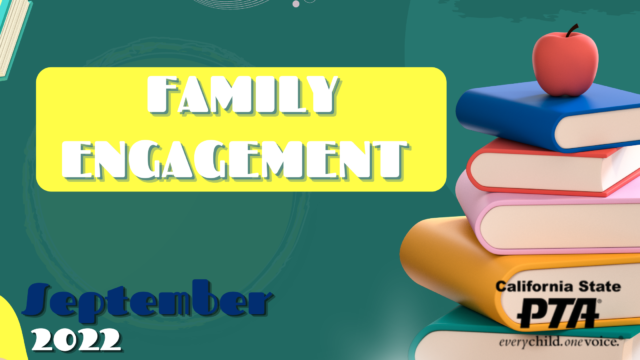by Communications Commission

Congratulations to the California State PTA/PTSA units at schools throughout our state who were designated 2023-2025 National PTA Schools of Excellence in recognition of their commitment to building an inclusive and welcoming school community where all families contribute to enriching the educational experience and overall well-being for all students.
| Adams Middle School PTSA | Redondo Beach |
| Alameda Elementary PTA | Downey |
| Barnard PTA | San Diego |
| Beacon Park PTA | Irvine |
| C.C. Carpenter Elementary PTA | Downey |
| Chula Vista Hills Elementary PTA | Chula Vista |
| Conrad L. Smith Elementary PTA | San Luis Obispo |
| Delevan Drive Elementary PTA | Los Angeles |
| Eastwood PTA | La Mirada |
| Ed C. Lewis Elementary PTA | Downey |
| Forest Park PTA | Fremont |
| La Merced Academy PTA | Montebello |
| McKinley PTA | Burlingame |
| Mira Catalina Elementary School PTA | Rancho Palos Verdes |
| Palmer Way PTA | National City |
| Rio Vista Elementary PTA | Anaheim |
| Riverview International Academy PTSA | Lakeside |
| Sherman PTA | San Francisco |
| Vallejo Mill PTA | Fremont |
| Willow Glen Elementary PTA | San Jose |
| Winifred Pifer PTA | Paso Robles |
| Avocado Elementary PTA | La Mesa |
| Alta Vista Elementary PTA | Redondo Beach |
| Edna Batey Elementary School PTA | Elk Grove |
The National PTA School of Excellence recognition program supports partnerships between parents and school leaders. The goal is to open the lines of communication within school communities so they can think critically about student needs and make data-driven decisions that yield positive, long-term results. We are excited to acknowledge and celebrate the strong partnerships between local California PTA/PTSAs and schools that will enrich the educational experience and overall well-being of students in their school communities. The enrollment period for the 2024-2025 National PTA School of Excellence program will be open until October 15, 2024. Enrollment is now open for the coming school year. By enrolling in this program, your PTA and school administrators are making a year-long commitment to identifying and implementing an action plan for school improvement based on PTA’s National Standards for Family-School Partnerships and Transformative Family Engagement. Once enrolled, local PTAs will gain access to free tools to run their School of Excellence program. Local PTAs are encouraged to enroll early to start building their Excellence Teams and to familiarize themselves with the steps in the program process. Learn more: https://www.pta.org/home/programs/National-PTA-School-of-Excellence
The enrollment period for the 2024-2025 National PTA School of Excellence program will be open until October 15, 2024. Enrollment is now open for the coming school year. By enrolling in this program, your PTA and school administrators are making a year-long commitment to identifying and implementing an action plan for school improvement based on PTA’s National Standards for Family-School Partnerships and Transformative Family Engagement. Once enrolled, local PTAs will gain access to free tools to run their School of Excellence program. Local PTAs are encouraged to enroll early to start building their Excellence Teams and to familiarize themselves with the steps in the program process. Learn more: https://www.pta.org/home/programs/National-PTA-School-of-Excellence

